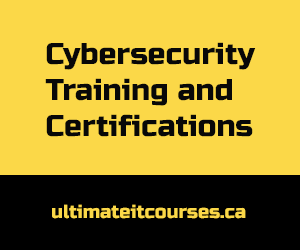The cybersecurity industry is booming with job scope.
The pandemic came with a lot of business chaos, the need for stronger cybersecurity being one. As technology is advancing, hackers are also sophisticating their techniques with AI. And since then, cybersecurity is becoming a hot career route owing to the increasing demand.
From the organization’s perspective, HR and IT hiring managers find filling cybersecurity positions the most difficult. So, if you are looking to join an IT workforce, cybersecurity is a fast way to go about it. Here are some important steps to keep in mind.
1. Constantly Network
Connecting with other security, IT and HR professionals is a good way to find job opportunities and find competitive benefits for your personal growth. According to a survey, 38% of currently-working security professionals agree that networking was how they got the job. If you are short on contacts, there are many ways to build contacts on the web. You can participate in online cybersecurity groups, follow cybersecurity experts on LinkedIn or join subreddits pertaining to cybersecurity.
2. Get Only the Necessary Certifications
The CISSO certification is the must-have certification for security job aspirants. It’s also the most valuable IT certification overall. Employers are aware of something called certification loading. Admittedly, there are a lot of cybersecurity certifications online, and adding them blindly to the resumes is not the way to go. To many employers, those certifications are a waste of time unless it focuses on a specialized skill. Here’s a tip for security aspirants, hands-on experience is more valuable and increases your chance of getting hired. If you are a professional IT employee with experience in managing cloud and hybrid cloud environments, the experience is relevant in cybersecurity. Cloud and application management is among the top cybersecurity specializations.
3. Don’t Just Settle
The ESG-ISSA survey states that newcomers will accept the first offer they get. But here’s why that is wrong. Keeping with the currency cybersecurity skill shortage, it’s a seller’s market. But there are other factors to consider too apart from salary, like how the organization treats its employees. Cybersecurity is a difficult discipline and qualified employers are few. Hence, there’s always a complaint that there is seldom work-life balance. Cybersecurity jobs require constant training, to keep with the new skills and requirements. Hence, finding the right organization that appreciates constant learning and acknowledges the role it plays in a professionals Make sure to ask what type of work the employer is expecting and if it aligns with your ideals.
How organizations approach cybersecurity is also a factor that needs to be considered. A way businesses can attract better cybersecurity talent is by placing cybersecurity professionals on top of IT projects from the start. Cybersecurity pros are adept at managing IT operations but keeping them on the sidelines makes the job harder for the IT teams too.
Cybersecurity is a fast-growing job industry and the need for efficient cybersecurity workers is only going to increase as threats and cyberattacks are going to grow multifold. As hackers are equipping themselves with what’s latest in tech, it will be crucial for cybersecurity aspirants to be on guard and keep with what’s latest in tech, too.
Click here to view original web page at www.analyticsinsight.net








